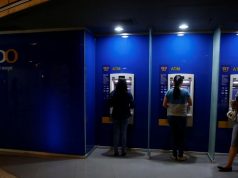A new study that found the world’s most boring jobs earned different reactions from workers in these lines of work.
The study was released by researchers from the University of Essex in the United Kingdom titled “Boring People: Stereotype Characteristics, Interpersonal Attributions, and Social Reactions” on the journal “Personality and Social Psychology Bulletin” on March 8, 2022.
It examined the perceptions that people ascribe to a stereotypical boring person including hobbies and occupations.
Five experiments were conducted on 500 people to find what constitutes a boring person according to public perception.
According to their findings, the following are the top five most boring fields of work are:
- Data analysis
- Accounting
- Tax/insurance
- Cleaning
- Banking
The most exciting, meanwhile, are as follows:
- Performing arts
- Science
- Journalism
- Health professional
- Teaching
When this study was reported online on March 22, some Filipinos who work in any of the jobs mentioned said that they are contented where they are.
“Bank accountant here. For me, it’s okay if my job is boring. Not everyone wants excitement,” the bank accountant said.
Some also defended data analysis, which is at the first spot. They said it is not as boring as people thought it is.
“Data analysis is NOT boring. Numbers tell a story It’s like detective work you discover the why, how and eureka you know the what,” a Facebook user said.
“Data Analysis is happy pill ng mga mahilig sa puzzle. Always engaging to unravel the story you can draw from being raw data, to pieces of info, to descriptive and/or prescriptive statements,” another user commented.
Others also said that banking is rather stressful, not boring. Some shared that cleaning is a stress relief for them.
Purpose of this research
The researchers conducted the study on the basis that being perceived as “boring” often conveys negative public perceptions that can lead to harmful psychological consequences on the person.
“Our research shows that being perceived as boring likely conveys low competence and low warmth, being a social burden, thus causing avoidance by others,” they said in the study.
“Rather than innocuous, such social reactions can lead to social isolation, for example, in the form of loneliness or ostracism (Weiss, 1973; Williams, 2002) with profound psychological consequences (Cacioppo et al., 2003; Williams, 2012). Those perceived as boring may thus be at greater risk of harm,” they added.
In their findings, however, researchers learned that these stereotypically boring people are as equally important to society as those who are not.
“Despite the negative stereotype that those who perform jobs in, for example, accounting, taxation, and data analysis may accordingly face, society needs people to perform those roles. Rather than perceiving them as performing a social ‘crime,’ as Cecil Beaton may have joked, perhaps those seen as boring should receive some sympathy and support instead,” they said.










